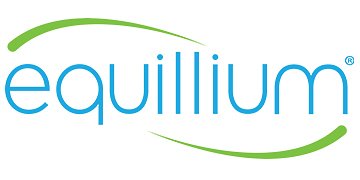
Equillium Pivots to AhR Modulator EQ504, Secures $50M to Target Ulcerative Colitis
Biotech firm Equillium has secured up to $50 million in funding to advance its lead candidate, EQ504, a novel therapy targeting ulcerative colitis. The company is betting on a new approach to immune modulation, shifting focus from previous programs.
Equillium Pivots to AhR Modulator EQ504, Secures $50M to Target Ulcerative Colitis
NEW YORK, NY – November 13, 2025
Biotech Firm Refocuses on Novel Immune Therapy
Equillium, Inc. announced today it has secured up to $50 million in financing and is aggressively refocusing its efforts on the development of EQ504, a first-in-class Aryl Hydrocarbon Receptor (AhR) modulator for the treatment of ulcerative colitis (UC). The company is betting that modulating the AhR pathway offers a novel and potentially more effective approach to managing the debilitating autoimmune condition. This strategic pivot follows a period of program diversification and restructuring, and signals a firm commitment to EQ504 as its lead asset.
The financing, which includes an initial $30 million upfront investment from new and existing investors, is expected to fund operations through 2027, providing a stable runway for the advancement of EQ504 into a Phase 1 clinical trial planned for mid-2026. This financial commitment comes at a critical juncture, as the company seeks to validate its new strategy and position itself within the competitive UC treatment landscape.
Understanding the AhR Pathway and UC Treatment
Ulcerative colitis is a chronic inflammatory bowel disease that affects the lining of the colon and rectum. Current treatment options, including anti-TNF biologics, corticosteroids, and JAK inhibitors, can be effective for some patients, but often come with significant side effects or limited long-term efficacy. A substantial portion of patients do not respond adequately to these therapies, highlighting the need for innovative treatment approaches.
The AhR pathway has emerged as a promising target for modulating immune responses in a variety of autoimmune diseases. It plays a crucial role in maintaining intestinal homeostasis and regulating immune cell function. By selectively activating or modulating the AhR pathway, EQ504 aims to restore immune balance in the gut and reduce inflammation in UC patients. “The rationale behind targeting AhR is compelling,” noted one independent immunology expert. “It’s a pathway with a critical role in immune regulation, and modulating it could offer a more targeted and effective approach to treating UC.”
Several other companies are exploring AhR modulation for various inflammatory conditions. Azora Therapeutics, Bioniz Therapeutics, and Aqilion are all developing AhR-targeted therapies for IBD. The competition is increasing, but Equillium believes EQ504’s unique mechanism and potential for oral administration could offer a significant advantage.
A Strategic Shift for Equillium
Equillium's decision to prioritize EQ504 represents a significant strategic shift. Previously, the company’s lead asset was itolizumab, a monoclonal antibody targeting CD6-ALCAM. While itolizumab showed promise in early trials, Equillium ultimately decided to focus on EQ504, believing it holds greater potential for clinical success and commercial viability. This change also involved winding down other programs that were part of the Bioniz Therapeutics acquisition.
“The company has streamlined its focus to maximize value,” said a financial analyst covering the biotech sector. “While the previous pipeline offered diversification, it also created complexity. This move towards EQ504 demonstrates a clear commitment to a potentially game-changing therapy.” The company's third-quarter financial results reflect this change, with minimal revenue compared to the previous year, due to the end of previous funding agreements related to itolizumab. The company has demonstrated a commitment to fiscal responsibility and a lean structure.
Key Opinion Leader Validation
Equillium recently hosted a key opinion leader (KOL) event featuring Dr. Francisco Quintana and Dr. Brian Feagan, both highly respected experts in immunology and gastroenterology. Dr. Quintana, a leading researcher on the AhR pathway, highlighted its critical role in immune regulation and the potential for targeted modulation in autoimmune diseases. Dr. Feagan, a renowned gastroenterologist with extensive experience in UC clinical trials, emphasized the unmet medical need for more effective and well-tolerated therapies.
The KOL event served to validate Equillium's approach and generate excitement within the medical community. “The response from the KOLs was very positive,” said a source familiar with the event. “They recognized the potential of EQ504 and the rationale behind targeting the AhR pathway.” These endorsements are likely to further bolster investor confidence and attract potential partnerships.
The UC treatment market is expected to reach $12.5 billion by 2033, with a significant portion of growth driven by the demand for novel therapies. Equillium is poised to capitalize on this growing market with EQ504, if the Phase 1 trial proves successful. While challenges remain, the company's strategic pivot, financial stability, and validation from key opinion leaders position it for potential success.
